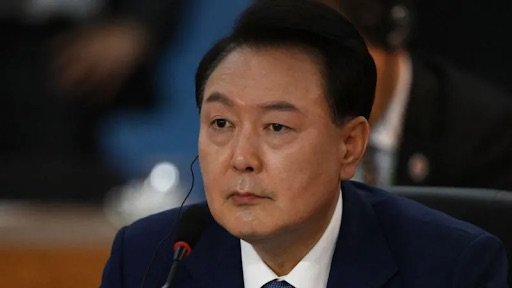South Korean President Yoon Suk Yeol is under increasing pressure as calls for his impeachment intensify following his controversial decision to declare martial law last week. Defending his actions in a televised address on Thursday, Yoon stated that the move was a legal and necessary step to “prevent the collapse” of democracy and counter what he described as the opposition’s “parliamentary dictatorship.”
Despite growing demands for his resignation or impeachment, Yoon made it clear that he would not step down. “I will stand firm whether I’m impeached or investigated,” he declared. “I will fight to the end.”
The president and his allies are facing investigations on charges of insurrection, with several of them now under travel bans. However, Yoon denied that his martial law declaration amounted to an act of insurrection, accusing his political opponents of spreading “false incitement” to undermine him.
In his address, Yoon reiterated his previous claims that the opposition posed a threat to the nation’s stability and that his actions were aimed at safeguarding democracy and protecting the public. He acknowledged his “legal and political responsibilities” but stood by his decision.
Last weekend, an impeachment attempt by opposition lawmakers failed after members of Yoon’s ruling party boycotted the vote. However, opposition leaders have pledged to hold weekly impeachment votes until Yoon is removed from office.
The ruling party had reportedly been trying to persuade Yoon to step down voluntarily to avoid further political turmoil. However, just before Yoon’s address, party leader Han Dong Hoon appeared on television, urging party members to vote for the president’s removal during the next impeachment vote set for this Saturday.
If parliament successfully passes an impeachment motion, the case would move to South Korea’s Constitutional Court, where a two-thirds majority would be required to permanently remove Yoon from office.
Yoon’s presidency has been mired in challenges since the opposition secured a sweeping victory in April’s general election, leaving his government unable to advance its legislative agenda and relegated to vetoing bills proposed by the opposition.

 English
English



























































